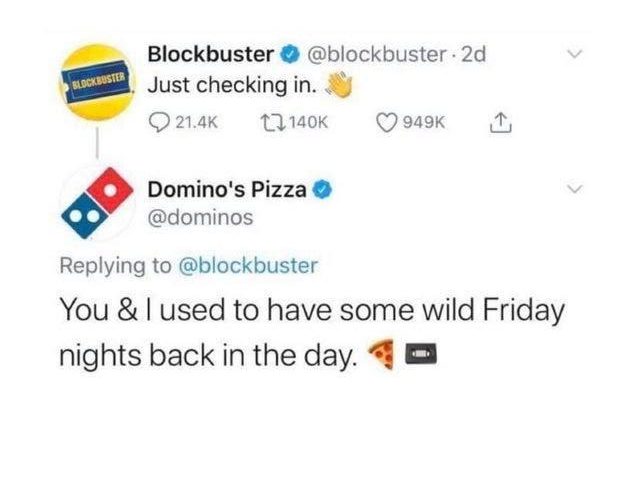1. Good Monday Morning
Thanks for being Spotlight’s Valentine today. Quick housekeeping note: we’re off next week for President’s Day and then we’ll be with you every Monday straight to Memorial Day.
Today’s Spotlight is 1,310 words — about a 5 minute read.
2. News To Know Now
Quoted:“If you receive calls, emails, or other communications claiming to be from the Treasury Department and offering COVID-19 related grants or stimulus payments in exchange for personal financial information, or an advance fee, or charge of any kind, including the purchase of gift cards, please do not respond. These are scams. Please contact the FBI at www.ic3.gov so that the scammers can be tracked and stopped.“— Treasury Department instructions as COVID-19 fraud and scams continue. Keep reading for more on this issue in Spotlight Explainer below.
a) The IRS rescinded its policy that people use their private contractor’s facial recognition program to retrieve personal data online. One day later, the contractor made facial recognition optional for all of its government programs. The company also said that people who had submitted their face images could opt to delete them.
b) Amazon Care, the company’s telehealth service offering, has now rolled out nationally ahead of Amazon launching in-person care in 20 U.S. cities this year.
c) Social media sharing could become more difficult in the future. Sens. Amy Klobuchar (D-MN) and Cynthia Loomis (R-WY) have introduced legislation that direct the National Science Foundation and National Academy of Sciences, Engineering and Medicine to create content-neutral ways to slow down sharing. One example already in place: a Twitter prompt that lets someone know if they’re sharing an article they haven’t read yet.
3. Search Engine News — Original Photos for Reviews
Using manufacturer images to accompany product reviews is convenient, but Google suggests using unique images. The search company also said that enhancing the stock photo isn’t enough to make it unique. And as a good analysis from Search Engine Journal points out, original images will be a big benefit for your site when it is manually reviewed by the Google Quality Rater team.
Not every website is manually reviewed by a quality rater, but with 10,000 of them throughout the world, the chances are good that it can happen. We’ve published info about that group’s guidelines before, but you can access the 172 page document at will.
4. Spotlight Explainer — COVID Fraud Online
The Situation
The U.S. government has prosecuted more than 100 people for fraud related to the Paycheck Protection Program and seized over $75 million in cash. There were new warnings last week that COVID fraud would continue to be a Justice Department priority. Those cases have received most of the media coverage, but the pandemic has created other opportunities for online fraud.
Print Your Own Vaccine Card
I keep asking business leaders how they’re verifying vaccination cards for employees or customers. No one has a good answer yet, and that’s because they’re handwritten records on easily available paper stock.
The Centers for Disease Control and Prevention also made an odd choice counter to their own recommendations by providing a link to printable vaccine cards. Grid News broke that story after following up on their previous reporting.
This is the simplest form of COVID fraud and yet people continue paying for fake cards. In one very public case that came to light several weeks ago two nurses were charged with selling forged vaccination cards and entering fake records into New York’s database. Their prices ranged from $85 for a child to $220 for an adult.
Selling Vaccine Misinformation
Nearly every publisher and online platform contains vaccine misinformation. Spotify’s issues with Joe Rogan are the well known ones, but hardly unique. Think about the anti-vaccination misinformation monetized on YouTube and other platforms while Amazon sells books by vaccine skeptics.
One well known skeptic who has been deplatformed elsewhere is Joseph Mercola, an osteopath who has generated more than $2.2 million selling anti-vaccination newsletters on Substack. The Substack platform allows creators to keep up to 90% of revenue.
Ongoing PPP Fallout
The latest big COVID fraud case to make national news is the search for Tamara Dadyan, a California real estate broker who along with family members formed a group of eight who filed 150 fake PPP applications that netted them $18 million. Dadyan’s ten year prison sentence was due to begin two weeks ago, but she and two others have escaped.
Fake Tests & Surveys
The Department of Health and Human Services is warning that COVID fraud and scams are increasing online. These include surveys, sales of fake tests, and identity theft. The agency warns that you could be on the hook if someone gains your personal information and bills Medicare or Medicaid for unauthorized tests or procedures. Here’s their warning video.
5. Did That Really Happen? — The Government is Not Distributing Crack Pipes
Comedian Robert Wuhl’s classic bit about printing the legend that is more interesting than the boring truth continues flourishing with pundit claims and opinion hosts posing as newscasters.
The Washington Free Beacon, whose costs are underwritten by a hedge fund billionaire, poses as a conservative news website. They posted an article citing anonymous sources that falsely stated the Biden administration was giving drug-smoking pipes to millions of people.
Without checking to find out it was true, multiple outlets and Sens. Ted Cruz (R-TX) and Marco Rubio (R-FL) commented on and criticized the program that did not exist. Instead, the so-called safer smoking part of the kit includes alcohol swabs, lip balm, and other materials to help reduce disease transmission.
USA Today has the fact-checked details.
6. Following Up — Missouri Prosecutor Won’t Charge Reporter
We’ve been writing about the case of reporter Josh Renaud who privately warned the Missouri government that Social Security Numbers and other personal information about teachers could be accessed by the public on a state website. Renaud promised not to publish the news until the state fixed the flaw, but Gov. Mike Parson targeted Renaud and referred to him on multiple occasions as a criminal.
Renaud didn’t commit a crime. He pressed the button on his browser that allowed him to see the website code. Parson has held fast to the criminal narrative for months, but the county prosecutor confirmed last Friday that he will not press charges.
7. Protip — Using Air Tags for Stalking Is A No-No
I wasn’t sure how to feel when my wife sent me Kashmir Hill’s great piece on tracking her husband’s movements using Air Tags and other trackers. (Hill, maybe the best general circulation privacy reporter around, had her husband’s permission.)
But I am almost 100% certain that Apple’s statements about abusing Air Tags for stalking came directly as a result of Hill’s piece. And you should read this because Apple says they will work with law enforcement to help them prosecute those cases.
8. Screening Room — Super Bowl Free
We’ve all seen enough TV commercials these past few days so let’s revisit this fantastic tweet from Adidas. The message posted last Wednesday morning featured images of 25 pairs of bare breasts as Adidas promoted their sports bra line in one of the most inclusive and body positive ways possible.
9. Science Fiction World — DARPA’s Autonomous Helicopter For the U.S. Military
You do too know about DARPA. They started a project back in 1966 that became ARPANET, which became the internet. And they do other cool stuff. Now there’s news that the agency tested a 30 minute autonomous Black Hawk helicopter flight around Fort Campbell two weeks ago.
10. Coffee Break — Tom Cruise Deepfake (A New One)
We’ve shown you deepfakes for years. Many feature Tom Cruise, but the state-of-the-art is reaching a point where lay people can’t detect the video manipulation.
Here’s a short video of Paris Hilton from last week with what appears to be a much younger Tom Cruise. It’s really Miles Fisher, who resembles the actor in the same way a nightclub impersonator might present as a singer. But a little computer magic makes that resemblance become identical.
11. Sign of The Times






